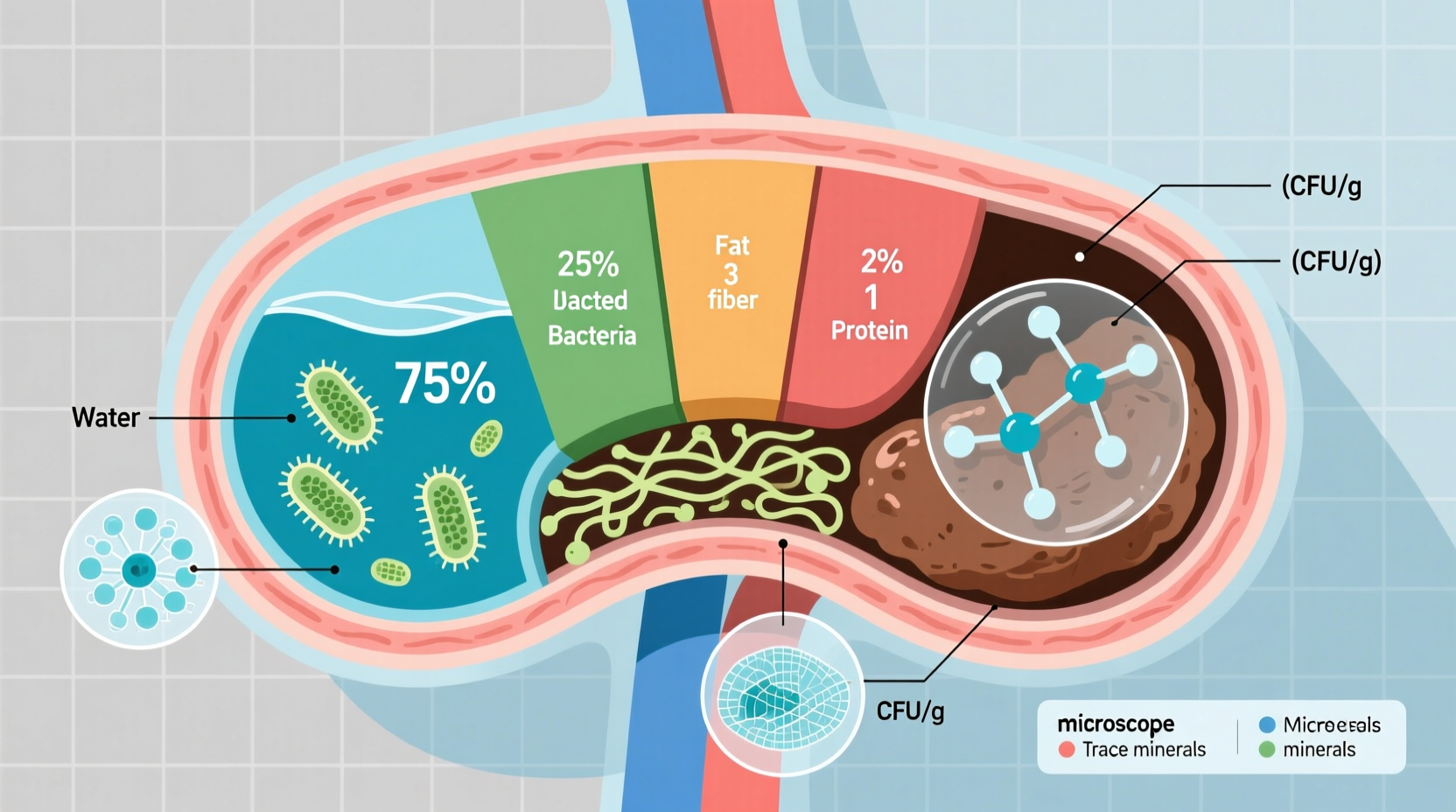Understanding the taste profile of human waste requires examining its biological composition and the significant health hazards involved. While curiosity about unusual sensory experiences is natural, this particular inquiry intersects with critical public health concerns that demand careful explanation.
The Science Behind Fecal Taste Composition
Human excrement's characteristic bitter flavor stems from multiple biological components. Bile, produced by the liver and stored in the gallbladder, gives feces its yellowish-brown color and distinctly bitter taste. As bile breaks down during digestion, it creates compounds called bilirubin derivatives that intensify this bitterness. Additionally, the complex microbiome in the large intestine produces various metabolic byproducts that contribute sour and putrid notes to the overall flavor profile.
| Component | Contribution to Taste | Origin |
|---|---|---|
| Bile derivatives | Intense bitterness | Liver/gallbladder |
| Bacterial metabolites | Sour, putrid notes | Colon microbiome |
| Undigested compounds | Variable flavors | Dietary sources |
| Dead cells | Metallic undertones | Intestinal lining |
This scientific understanding comes from medical analyses rather than direct human tasting experiments. Researchers studying gastrointestinal health occasionally reference taste characteristics when documenting unusual medical cases, but never encourage replication.
Immediate Health Risks of Fecal Exposure
The Centers for Disease Control and Prevention (CDC) identifies numerous pathogens commonly present in human waste that can cause serious illness upon oral exposure. These include Escherichia coli, Salmonella, hepatitis A virus, and various parasites like Giardia lamblia. Even microscopic amounts can trigger infection.
Within 30 minutes of exposure, potential symptoms may begin including:
- Nausea and metallic taste sensation
- Burning sensation in the mouth and throat
- Initial immune response symptoms
Within 24-72 hours, more severe symptoms typically develop such as vomiting, diarrhea, fever, and abdominal cramps. The World Health Organization emphasizes that fecal-oral transmission remains a primary pathway for numerous infectious diseases worldwide, particularly in areas with poor sanitation infrastructure.
Medical Context and Rare Exceptions
While intentionally tasting feces is extremely dangerous and never recommended, certain medical conditions can alter taste perception. Patients with zinc deficiency sometimes report metallic or bitter taste distortions. More rarely, neurological conditions affecting the gustatory system might create unusual taste experiences.
It's crucial to distinguish between accidental exposure (which requires immediate medical attention) and intentional exposure (which carries preventable health risks). The American Gastroenterological Association reports that fecal microbiota transplantation, a medically supervised procedure for treating C. difficile infections, involves processed material that's completely different from raw fecal matter.
Safety Guidelines and Medical Response
If accidental oral exposure occurs, immediate action is critical:
- Rinse mouth thoroughly with clean water (do not swallow)
- Drink milk or water to dilute any remaining particles
- Contact a healthcare provider or poison control center immediately
- Monitor for symptoms over the next 72 hours
Medical professionals may recommend preventive antibiotics or other treatments depending on the exposure circumstances. The CDC's sanitation guidelines emphasize that proper handwashing with soap for at least 20 seconds remains the most effective prevention method against fecal-oral disease transmission.

Understanding Natural Aversions and Protective Mechanisms
Human evolution has developed strong aversions to fecal matter as a protective mechanism against disease. Our taste receptors register bitterness as a warning signal for potential toxins - an evolutionary adaptation that helps prevent consumption of harmful substances. This biological defense system explains why the bitter compounds in feces trigger immediate rejection responses.
Research published in the Journal of Gastroenterology confirms that disgust responses to fecal matter are nearly universal across human populations, serving as a critical behavioral defense against pathogens. These innate protective mechanisms shouldn't be overridden out of curiosity, as the health consequences can be severe and long-lasting.











 浙公网安备
33010002000092号
浙公网安备
33010002000092号 浙B2-20120091-4
浙B2-20120091-4